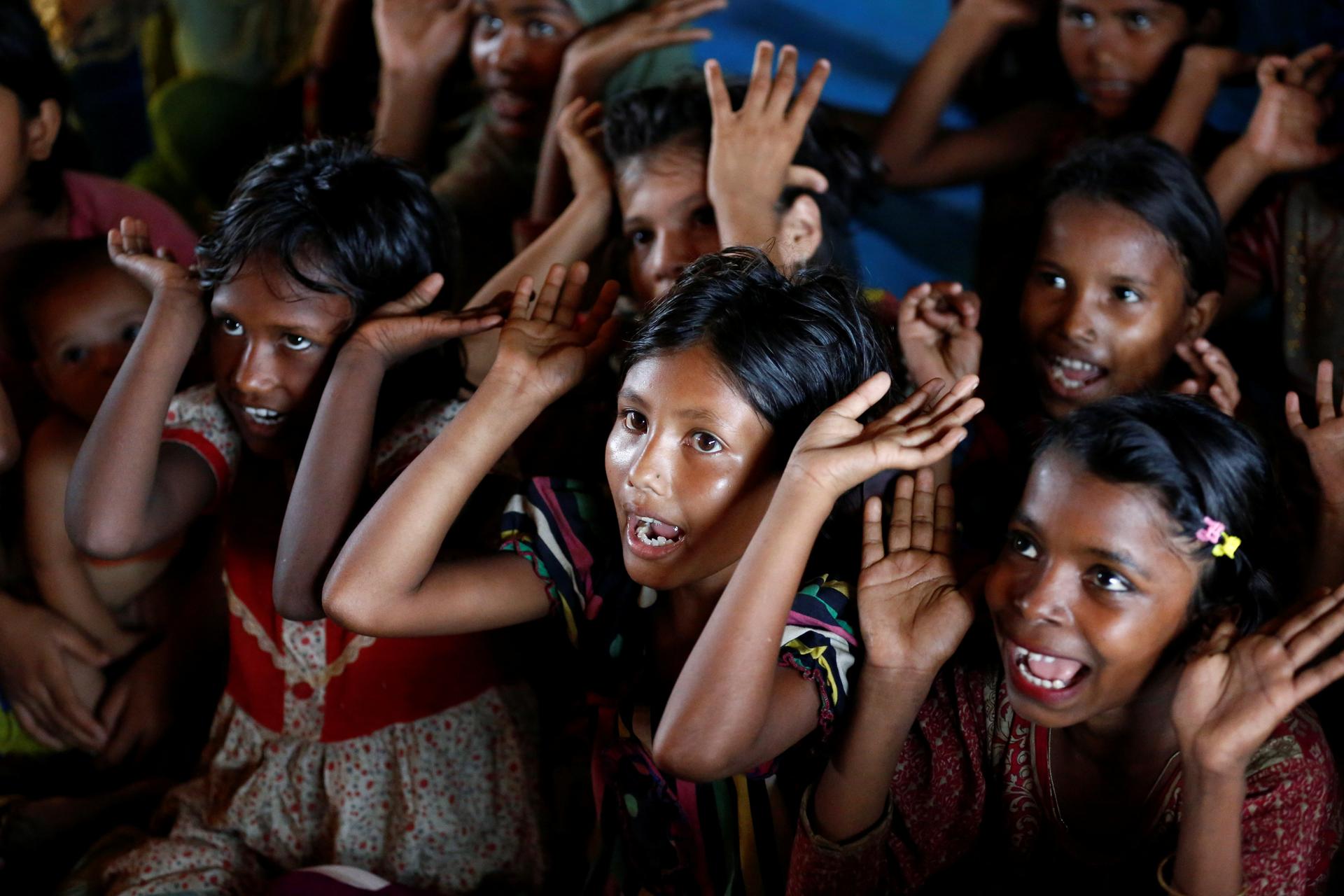Trump says the world is a nasty place. This humanitarian disagrees.
Rohingya refugee children attend a makeshift school at Balukhali Makeshift Refugee Camp in Cox's Bazar, Bangladesh.
Everywhere President Donald Trump looks these days, he seems to see a "nasty" place.
At his inauguration in January, the new head of state detailed his dark vision of "American carnage." This week at a press conference with NATO Secretary General Jens Stoltenberg, he extended that dark view to the entire planet.
"Right now the world is a mess," Trump told the audience.
Few would argue that the institutions that have bound the world together in the post-World War II era seem to be fraying beyond repair. There's much talk of a leaderless world, and America in retreat.
"That's what makes people feel that there is unprecedented degree of uncertainty," says David Miliband, the CEO of the International Rescue Committee. "The truth is that the old is dead and the new is not yet born, and we don't know what the next world order is going to be."
Miliband and others in the international humanitarian community admittedly view the world through a prism of war zones and fragile states, overwhelmed by a record number of refugees and displaced people.
But they also see opportunity.
"Never forget, the world has never been richer, it's never been better educated, and actually global inequality is reducing," Miliband says.
The former UK foreign secretary sees the populist revolt in America and Europe as the cry of those losing control of their lives, who've been dispossessed of opportunities they'd come to expect and rapid globalization that has changed communities beyond recognition.
But he thinks a world in disarray is not inevitable, and thoughtful leadership can fill the vacuum.
"This is a time when that populist backlash that is happening across the Western world needs to be answered not with a kind of dismissal, but with a serious engagement that says it's crazy to trade off the hopes and aspirations of the poorer middle class in Western countries against the most vulnerable people in the world who are dispossed in Syria, Nigeria and elsewhere," he says. "It's a false choice and it's one we shouldn't fall for."
Miliband's own background informs his views. His parents were refugees from Nazi Europe.
